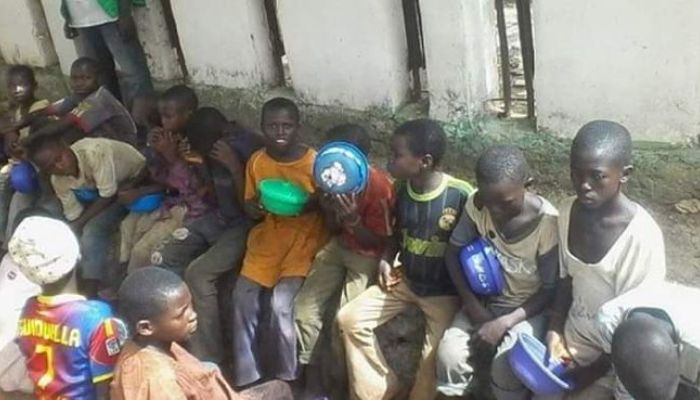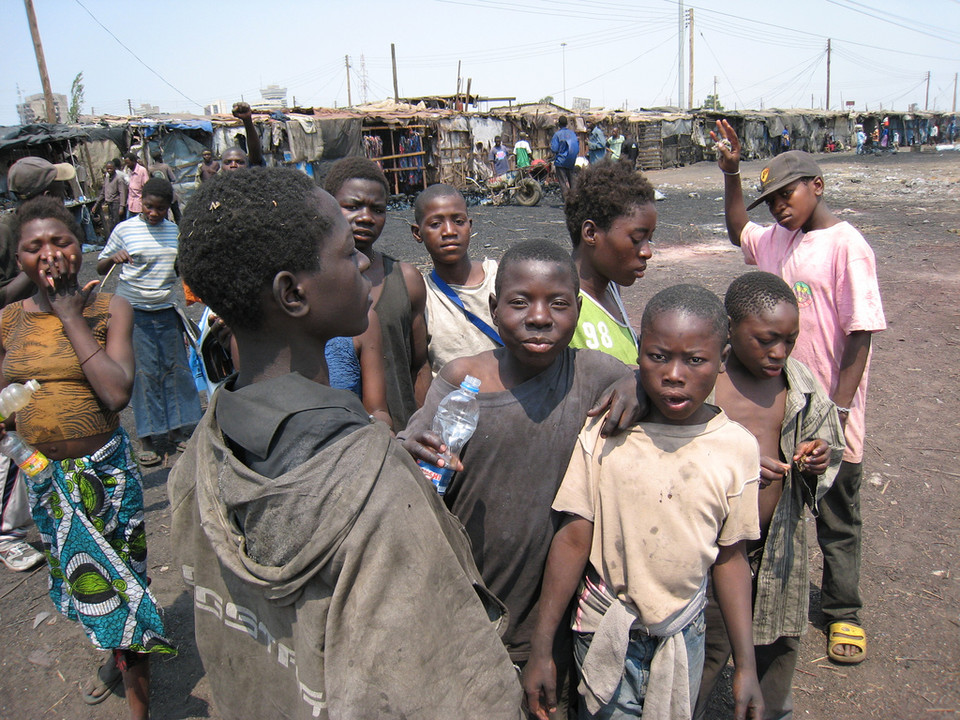Street children are a growing phenomenon is every city of the world, and family breakdown is the greatest factor. Oshodi is a popular spot where children spend their days working, being abused or exploited, unable or unwilling to return home due to poverty, abuse or family conflict. They are denied their rights as children to go to school and be cared for in a home.
He is already 18, but one would take him for a child on account of stunted growth. Looking rather dirty and unkempt, Abdulmajid who completed his secondary education at Alhudahuda Collge in the quiet town of Zaria in Kaduna state last year, said he was forced to the streets because of a cruel fate that befell him.
“I don’t have parents. My mum died during my early years in secondary school, while my father also died after an auto accident he had in 2013. I have had to fend for myself since there was no uncle, aunt or relative to fall back on. It was tough,so I decided to venture into the streets to eke out a living” he said in the Hausa language.

M.J as he is fondly called by his friends is a wheel-barrow ‘pusher’ in one of the numerous markets scattered in the nations Federal Capital city Abuja. He says he sleeps anywhere nightfall meets him, as he does not have the luxury of renting an accommodation even in the cheapest part of town.
For him and many more of his type, street living is the norm for most Nigerian kids, and more worrisome is the age of some of these kids. A very worrisome situation is the fact that many of them are out of school. They suffer various forms of indignation and inhuman treatments. They battle for survival in an environment similar to the one described in the classic work The Animal Kingdom.
The consequence is the incredible growing number of street children in Nigerian cities fighting for meals, survival and space to lay their heads. You find these children roaming the streets, begging, suffering battery, being subjected to child labour like street hawking, rape and other forms of sexual abuse/prostitution, as well as sleeping in make-shift structures, abandoned vehicles and pavement. Some of them absconded from homes because of maltreatment from their parents,especially stepmothers in fragmented or polygamous families.
Besides the nations economic situation, these children may have chosen to make the street as their resort for other reasons. Unfortunately, some of them may have no choice – they are abandoned, orphaned, or thrown out of their homes. Some may choose to live in the streets in defiance, another state that has to do with the psychological make up of the child. Disappointedly though, some children also work in the streets because their earnings are needed by their families, in fact this particular case is becoming very rampart as it were.
The challenges posed by these children both to the government and the environment at large cannot be overemphasized. The resultant effects created abinitio may appear very immeasurable but on the long run it creates a devastating imbalance on the polity. Experience has shown that these minors, later in life become ready tools employed by unscrupulous elements in the society to carry out their nefarious activities.
According to a UNICEF statistics, physical abuse accounts for 27 per cent of children who are forced into the streets. These figures includes Dagga (not real names), a 19 year old street boy who claimed he was sexually abused by an uncle while leaving with him in the village after the death of his parents in the hands of the dreaded Boko Haram terrorists.
“I lost my parents, they were killed by bombs in Borno two years ago. Then I went to stay with my uncle in Garki-da, a village in Adamawa state. I went there with my younger ones. He is even a policeman. But every time, he will attempt to sexually molest me. One day he came to the house drunk with his police friend and they both did it.
“After that night, I vowed to escape them and left the village and found myself in Abuja.”
On getting to Abuja, Dagga recalled that he had sustained injuries from the beating unleashed on him by bigger boys. The street, he said, seemed to be taking a tough toll on him with fresh scars on his body.
Across Nigeria, there are millions of children who are neither cared for nor have the prospects of personal fulfillment for the future. Their forlorn outlook paints a graphic portrait of their state of helplessness. Bereft of hope and cut off from the sustenance of family ties, these children roam the streets in a daze. They appear unkempt, emaciated, a picture of innocence defiled. Speak to them and they reveal a total absence of hope regarding their future.
They make their “homes” in some of the filthiest, most dangerous parts of cities and towns, including abandoned buildings, underneath overhead bridges, and near refuse dumps which they scavenge for food.
They usually retire to their dangerous “abodes” at dusk and dash out early in the morning before they are seen by the prying eyes of the police or rightful owners of some of the structures that serve as haven.
The phenomenon of street children has transcended the urban exception, being both an urban and rural phenomenon in present day Nigeria. While it might be difficult to assume a reflective figure for the dimension of this problem, suffice it to say that the phenomenon was rare in the mid eighties.
There were an estimated 8000 of them by the early 1990s. By 1999, children were reported in over a hundred street locations in Lagos alone. The problem, rather than abating, is worsened by the persisting social climate of poverty subsisting in ignorance and political mismanagement.
But, these street children are Nigerians, with a hope of a better future only if things work out as it should.





Leave a reply